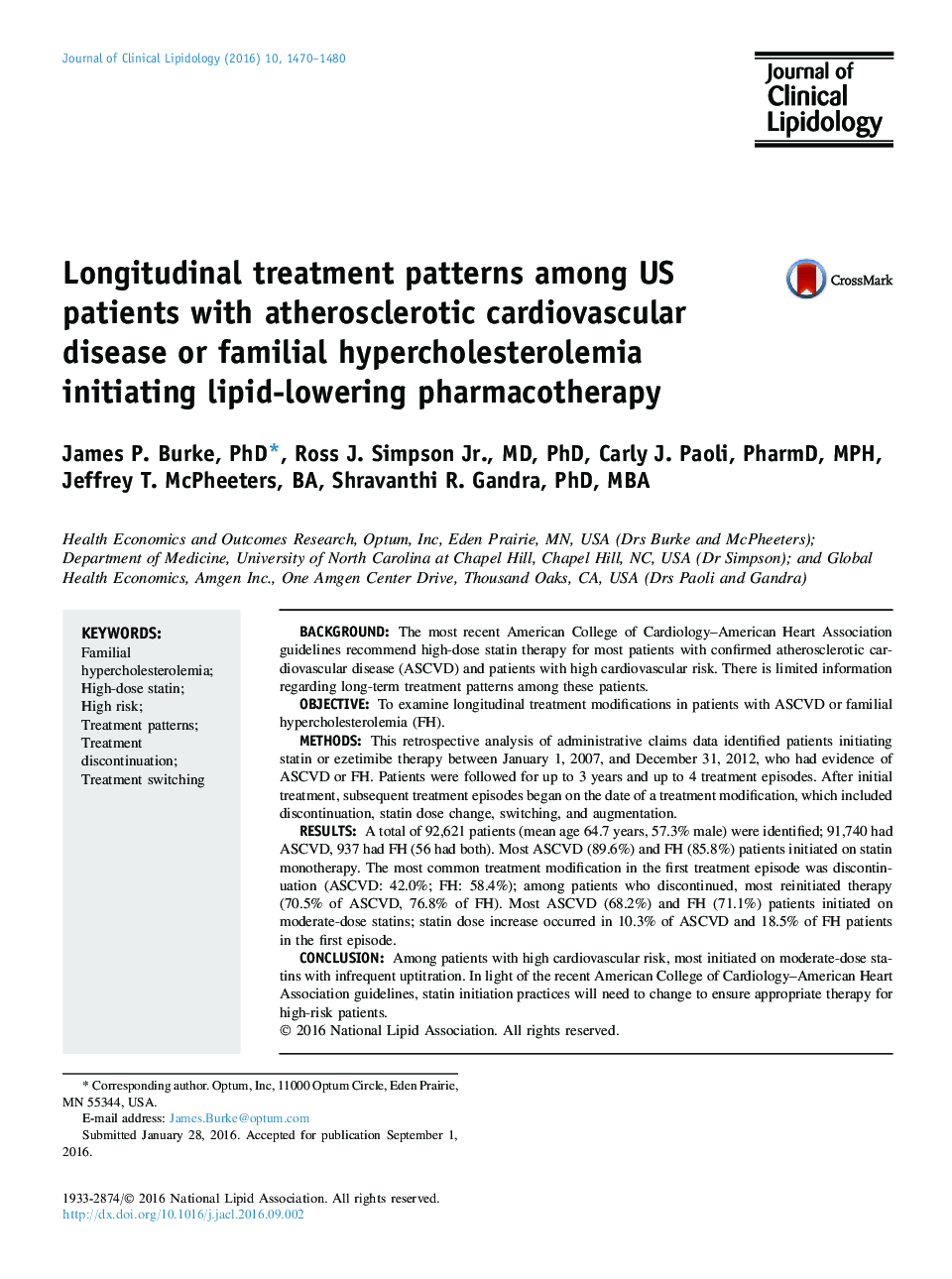| Article ID | Journal | Published Year | Pages | File Type |
|---|---|---|---|---|
| 5985151 | Journal of Clinical Lipidology | 2016 | 14 Pages |
â¢Treatment patterns in patients with elevated cardiovascular risk were examined.â¢Most patients initiated on moderate-dose statins.â¢After treatment initiation, statin dose uptitration was infrequent.â¢Discontinuation was the most common pattern yet the majority reinitiated therapy.
BackgroundThe most recent American College of Cardiology-American Heart Association guidelines recommend high-dose statin therapy for most patients with confirmed atherosclerotic cardiovascular disease (ASCVD) and patients with high cardiovascular risk. There is limited information regarding long-term treatment patterns among these patients.ObjectiveTo examine longitudinal treatment modifications in patients with ASCVD or familial hypercholesterolemia (FH).MethodsThis retrospective analysis of administrative claims data identified patients initiating statin or ezetimibe therapy between January 1, 2007, and December 31, 2012, who had evidence of ASCVD or FH. Patients were followed for up to 3Â years and up to 4 treatment episodes. After initial treatment, subsequent treatment episodes began on the date of a treatment modification, which included discontinuation, statin dose change, switching, and augmentation.ResultsA total of 92,621 patients (mean age 64.7Â years, 57.3% male) were identified; 91,740 had ASCVD, 937 had FH (56 had both). Most ASCVD (89.6%) and FH (85.8%) patients initiated on statin monotherapy. The most common treatment modification in the first treatment episode was discontinuation (ASCVD: 42.0%; FH: 58.4%); among patients who discontinued, most reinitiated therapy (70.5% of ASCVD, 76.8% of FH). Most ASCVD (68.2%) and FH (71.1%) patients initiated on moderate-dose statins; statin dose increase occurred in 10.3% of ASCVD and 18.5% of FH patients in the first episode.ConclusionAmong patients with high cardiovascular risk, most initiated on moderate-dose statins with infrequent uptitration. In light of the recent American College of Cardiology-American Heart Association guidelines, statin initiation practices will need to change to ensure appropriate therapy for high-risk patients.
